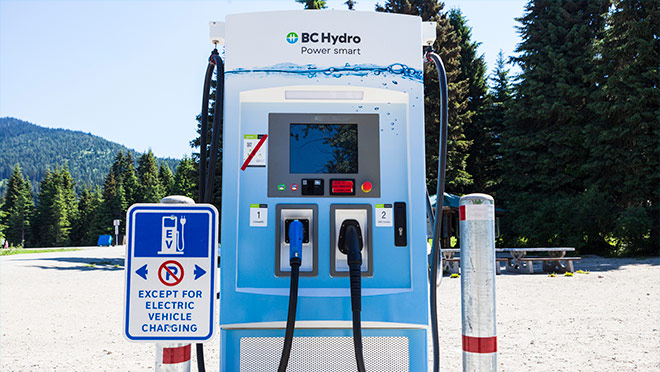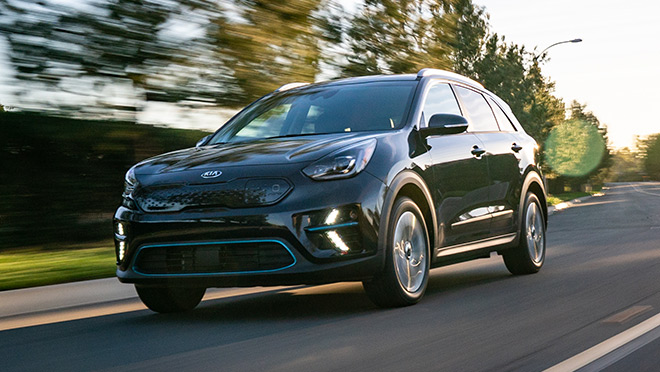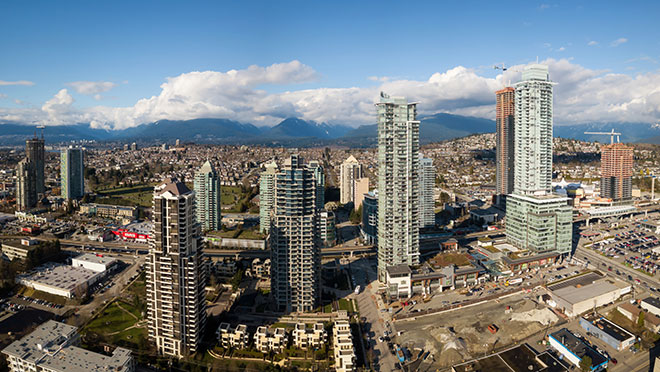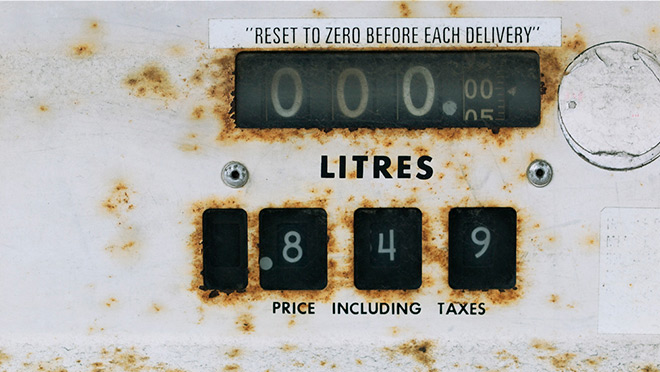9 EV myths busted, from range anxiety to higher costs

Arguments against ownership of an electric car are evaporating
Please note: This story was updated to include new information in September 2021.
The best way to understand how far electric vehicles have come in the last five years is to talk to someone who owns one. Almost without fail, EV owners emerge as true believers who have only minor complaints about life with one.
Don't know an EV owner you can talk to? Still have doubts about buying an electric vehicle? We're here to help you with a look at some of the most pervasive myths associated with plug-in electric vehicles.
Myth No. 1: EV drivers experience range anxiety
A 2020 EV driver survey by the American Automobile Association found that while 91% of those who bought an EV initially worried about driving range or access to charging stations, those concerns eased. More than 96% said their next car would also be electric, only 5% reported ever draining their battery, and on average, drivers did 75% of their charging at home.
Driving range remains, however, the leading consideration when purchasing an EV. A 2021 JD Power EV ownership study found that when deciding which model to buy, the most-often-cited factors in the purchase decision are battery life and driving range.
While the availability of models with extended range had been limited to premium-priced vehicles led by Tesla, that's changing each year. For 2021, of the 11 fully-electric models available in B.C. that qualify for combined B.C. and federal rebates of up to $8,000 have an average range of 343 km. Rebates are only available for cars priced $55,000 or less.
And for many, even a limited range suits the vast majority of their driving: a 2019 survey conducted for BC Hydro found British Columbians drive an average of 20 km a day, and that 95% of all car trips are less than 30 km.
For those who crave the eco option around town but want the versatility of extended trips, there's an extensive and growing list of fast-charging stations across B.C. And many owners are dipping a toe in the water with a plug-in hybrid that allows them to drive mainly electric around town, but which offers long gas-powered range for extended trips around B.C.

Myth No. 2: Electric vehicles don't actually reduce carbon emissions
Even in regions of North America where a big portion of electricity is generated by coal or other fossil fuels, studies show that there are long-term CO2 emission reduction gains in driving electric.
And then there's this province., where BC Hydro generates power from water to produce clean and renewable electricity. That adds up to significant CO2 emission reductions when switching to EVs.
How significant? The Canadian Automobile Association's driving costs calculator shows the top-selling vehicle in Canada – the long-time champion Ford F-150 pickup – emits 24,815 kg of greenhouse gases (GHGs) when driven an average of 20,000 km a year over five years in B.C. That's 20 times the emissions of Canada's top-selling EV, the Tesla Model 3, driven over the same period and distance.
Critics of EVs also suggest that there are more carbon emissions associated with the manufacture of electric vehicles than with gas-powered vehicles. But while conventional drivetrains can have as many as 2,000 parts, electric drivetrains are far simpler, with sometimes fewer than 20 parts.
A recent environmental life cycle assessment, which factors in emissions associated with vehicle manufacturing, was commissioned by PlugInBC and the Fraser Basin Council. It concluded that "an EV charged in B.C. breaks even (pays off its environmental burden) within 30,000 km driven, and any distance driven beyond 30,000 km becomes carbon-negative."
Look for the environmental cost of manufacturing to continue to decrease, as many auto manufacturers are increasing the use of renewable electricity at their factories.
Myth No. 3: Old EV batteries add up to a lot of waste
Car companies are responding to criticism that the large battery packs in electric cars produce significant waste, and that recycling of those batteries – even when done carefully to remove valuable components – requires the use of a lot of water.
Automakers including Nissan and BMW are piloting the use of old EV batteries, such as those that are replaced after losing 20% of their capacity – for the storage of electricity. General Motors has said it's designing its battery packs with second-life use in mind.
One Massachusetts Institute of Technology study found that used car batteries could be used for 10 years or more as backup storage for solar power.
Several recycling companies are coming up with innovative ways to recycle EV batteries. Retriev Technologies in Trail, B.C., for example, dismantles lithium ion batteries to recycle various steel, electrical, and plastic components. Leftover organic components are later consumed by Archaea microbes, which are added to holding tanks.
Evolving battery technology is also reducing – and may eventually eliminate – the use of cobalt, something EV manufacturers have been under fire for due to unethical and unsafe labour practices in some parts of the world.
Myth No. 4: Electric cars are still too expensive
Even with B.C. and federal rebates of up to $8,000 combined for the purchase of a new electric car, the higher initial cost of an EV remains a hurdle – both real and psychological – for many Canadians. But the math around total ownership costs in B.C., in particular, makes a strong case for the electric car already being cheaper.
It's not surprising that with gas prices in B.C. now well above $1.50 per litre in most areas, and the majority of EV charging happening at home, electric vehicles are now in huge demand.
Here's an apples-to-apples comparison on costs. Using the Canadian Automobile Association's driving cost calculator that factors in initial purchase price, depreciation, maintenance, fuel, and licensing/insurance costs, the cost of ownership for a Kia Niro EV over five years is $8,120 per year, while a gas-powered Kia Niro is $9,581 per year.
There are now at least six plug-in vehicles (a mix of battery-electric and plug-in hybrids) available in B.C. for less than $40,000, not including rebates. Up the price ceiling to $55,000 – the highest you can go and still get B.C. and federal EV rebates – and there are two dozen plug-ins available in B.C.

Myth No. 5: It's not practical to own an EV if you live in a condo
Studies have shown that on average, about 75% of EV charging is done at home. So what happens if you're in an apartment or condo development with no place to charge your vehicle?
It could be that you already have charging access, or that your parking areas are pre-wired to allow for the addition of a Level 2 charger. At least 15 B.C. municipalities now have bylaws requiring that all new multi-unit residential buildings are constructed to pre-wire for electric vehicle charging in parking stalls.
In older condos, you can advocate through your strata council to take advantage of B.C.'s Go Electric rebates to make your building EV Ready. Rebates are available for EV Ready planning, installation of electrical infrastructure, and for the purchase and installation of Level 2 networked EV chargers.
If you don't want to wait for the installation of charging infrastructure in your building, consider whether charging access at your workplace – or at a public charging station near your home – might allow you to keep your vehicle charged. And if charging access remains an issue, consider one of the dozens of plug-in hybrid vehicles available in B.C. that run on gas when the battery pack runs low.
Myth No. 6: Electric vehicles aren't a match for Canada's cold winters
Taking care in buying the right vehicle – preferably one with long range and all-wheel drive – can make it practical to own and operate an EV in a cold Canadian winter.
Do your research, as manufacturers are stepping up their game to meet cold weather challenges. For example, there's now a cold weather package option for the Kia Niro EV that adds a heat pump, battery warmer, and heated steering wheel to the mix.
Meanwhile, in Norway – where winters are hardly tropical – the country leads the world in EV use, with a whopping 54% electric share of all cars sold in 2020. And we can learn a lot from a 2020 study conducted by the Norwegian Automobile Association (NAA).
The NAA test of winter performance by 20 electric vehicles discovered that, on average, driving range in cold temperatures was reduced by 19%. But there was a big range from model to model, with the Hyundai Kona EV leading the pack with only a 9% reduction in range. And the Audi e-Tron, which had the highest charging rate (150 kilowatts) in the test, was able to recharge from 10% to 80% in less than a half hour in January temperatures.
Check out the results of the NAA winter test, which includes some illuminating model-by-model range and charging time graphs.

Myth No. 7: BC Hydro's grid can't handle the demand added by electric vehicles
BC Hydro has been planning for increased adoption of EVs for years, and will be able to meet the demand.
We're predicting there will be around 350,000 EVs on B.C. roads by 2030, for an estimated additional 1,050 gigawatt hours of electricity load per year. The majority of charging takes place overnight, which is when residential power load from things like cooking, heating and lighting is the lowest.
We've also examined a future scenario with a dozen EV owners on the same street charging all at once. If 12 EVs are plugged into Level 2 chargers, this is simply the equivalent of running a dozen ovens at the same time.
Myth No. 8: There aren't enough charging stations to meet rising EV demand
In some regions in North America, public charging stations are few and far between. But that's not the case in B.C., where there are more than 2,500 charging stations.
BC Hydro operates a rapidly growing network of more than 90 fast chargers – capable of charging most vehicles to 80% capacity in 40 minutes or less – at more than 70 locations. Many are located along major highways on Vancouver Island and southern B.C., and a series of fast-chargers was recently added to highways west, south and east of Prince George.
Tesla operates more than 20 Superchargers in B.C. and has announced plans for stations at an additional 19 locations.
Myth No. 9: BC Hydro will increase rates once everyone has an electric vehicle
Today, the majority of EV charging in B.C. is done at home, where customers enjoy residential rates that are among the most affordable in North America. The cost of charging a Hyundai Kona EV at home for example, is estimated to be $38 per month, or a fifth of the cost of fuelling a gas-powered Kona.
BC Hydro is currently exploring options to update its residential rate structure, which has remained the same since 2008. New potential rate options could take into account the changing ways British Columbians are using electricity, from smart home products to EVs, while also ensuring affordability and fairness for all customers. Any change to BC Hydro rates requires an application and approval from the BC Utilities Commission (BCUC).